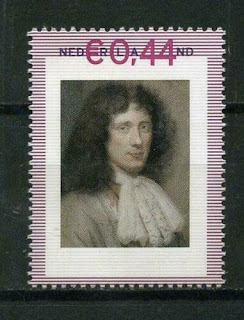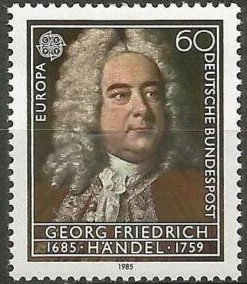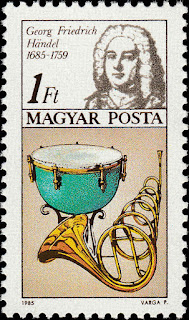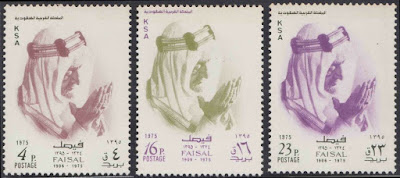1629 Born: Christiaan Huygens, Dutch mathematician, astronomer, and physicist (d. 1695)
Christiaan Huygens (Latin: Hugenius; 14 April 1629 – 8 July 1695) was a Dutch physicist, mathematician, astronomer and inventor, who is widely regarded as one of the greatest scientists of all time and a major figure in the scientific revolution. In physics, Huygens made groundbreaking contributions in optics and mechanics, while as an astronomer he is chiefly known for his studies of the rings of Saturn and the discovery of its moon Titan. As an inventor, he improved the design of the telescope with the invention of the Huygenian eyepiece. His most famous invention, however, was the invention of the pendulum clock in 1656, which was a breakthrough in timekeeping and became the most accurate timekeeper for almost 300 years. Because he was the first to use mathematical formulae to describe the laws of physics, Huygens has been called the first theoretical physicist and the founder of mathematical physics
Here are some stamps from the Netherlands depicting Huygens and his clock
1759 Died: George Frideric Handel, German-English organist and composer (b. 1685)
George Frideric (or Frederick) Handel (born Georg Friederich Händel; 23 February 1685 – 14 April 1759) was a German, later British, Baroque composer who spent the bulk of his career in London, becoming well known for his operas, oratorios, anthems, concerti grossi and organ concertos. Handel received important training in Halle and worked as a composer in Hamburg and Italy before settling in London in 1712; he became a naturalised British subject in 1727. He was strongly influenced both by the great composers of the Italian Baroque and by the middle-German polyphonic choral tradition.
Within fifteen years, Handel had started three commercial opera companies to supply the English nobility with Italian opera. Musicologist Winton Dean writes that his operas show that "Handel was not only a great composer; he was a dramatic genius of the first order." As Alexander's Feast (1736) was well received, Handel made a transition to English choral works. After his success with Messiah (1742) he never composed an Italian opera again. Almost blind, and having lived in England for nearly fifty years, he died in 1759, a respected and rich man. His funeral was given full state honours, and he was buried in Westminster Abbey in London.
Born the same year as Johann Sebastian Bach and Domenico Scarlatti, Handel is regarded as one of the greatest composers of the Baroque era, with works such as Messiah, Water Music, and Music for the Royal Fireworks remaining steadfastly popular. One of his four coronation anthems, Zadok the Priest (1727), composed for the coronation of George II, has been performed at every subsequent British coronation, traditionally during the sovereign's anointing. Another of his English oratorios, Solomon (1748), has also remained popular, with the Sinfonia that opens act 3 (known more commonly as "The Arrival of the Queen of Sheba") featuring at the 2012 London Olympics opening ceremony. Handel composed more than forty opera serias in over thirty years, and since the late 1960s, with the revival of baroque music and historically informed musical performance, interest in Handel's operas has grown.
Faisal was the third son of King Abdulaziz. His mother, Tarfa, was a member of the Al ash-Sheikh family which has produced many prominent Saudi religious leaders. Faisal emerged as an influential royal politician under his father and brother, King Saud. He was the Saudi foreign minister from 1930 and prime minister from 1954 until his death, except for a two-year break (1960–1962) in both positions. Faisal was crown prince of Saudi Arabia after Saud's accession in 1953, and in that position he outlawed slavery in Saudi Arabia. He persuaded King Saud to abdicate in his favour in 1964 with the help of other members of the royal family and his relative, Grand Mufti Muhammad ibn Ibrahim Al ash-Sheikh.
Faisal implemented a policy of modernization and reform. His main foreign policy themes were pan-Islamism, anti-communism, and pro-Palestinianism. He attempted to limit the power of Islamic religious officials. Protesting against support that Israel received from the West, he led the oil embargo which caused the 1973 oil crisis. Faisal successfully stabilized the kingdom's bureaucracy, and his reign had significant popularity among Saudi Arabians despite his reforms facing some controversy. In 1975, he was assassinated by his nephew Faisal bin Musaid.
Stamps issued by Saudi Arabia depicting Faisal bin Abdulaziz Al Saud
The Spanish Republic (Spanish: República Española), commonly known as the Second Spanish Republic (Spanish: Segunda República Española), was the form of government that existed in Spain from 1931 to 1939. The Republic was proclaimed on 14 April 1931, after the deposition of Alfonso XIII, and it lost the Spanish Civil War on 1 April 1939 to the rebel faction that would establish a military dictatorship under the rule of Francisco Franco.
After the proclamation of the Republic, a provisional government was established that lasted until December 1931, when the 1931 Constitution was approved and a Constitutional Republic was formally established. The republican government of Manuel Azaña initiated numerous reforms designed to modernize the country. After the 1933 general election, Alejandro Lerroux (Radical Party) formed a government with the confidence and support of the Spanish Confederation of Autonomous Right-wing Groups (CEDA). Under Lerroux's premiership, the Republic found itself facing an insurrection of anarchists and socialists that took on revolutionary dimensions in Asturias. The revolt was finally suppressed by the Republic with the intervention of the army. The Popular Front won the 1936 general election. On 17–18 July 1936, a coup d'état fractured the Spanish Republican Armed Forces, marking the beginning of the Spanish Civil War.
During the Spanish Civil War, there were three governments. The first was led by left-wing republican José Giral (from July to September 1936); however, a revolution inspired mostly on libertarian socialist, anarchist and communist principles broke within the Republic, which weakened the rule of the Republic. The second government was led by socialist Francisco Largo Caballero of the trade union General Union of Workers (UGT). The UGT, along with the Confederación Nacional del Trabajo (CNT), were the main forces behind the aforementioned social revolution. The third government was led by socialist Juan Negrín, who led the Republic until the military coup of Segismundo Casado, which ended republican resistance and ultimately led to the victory of the nationalists, who established a military dictatorship under the rule of Francisco Franco, known as Francoist Spain.
The Republican government survived in exile, and retained an embassy in Mexico City until 1976. After the restoration of democracy in Spain, the government formally dissolved the following year.
Spanish stamps issued in 1931 depicting Alfonso XIII overprinted with Republica Espanola










No comments:
Post a Comment